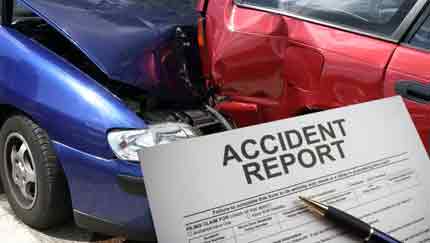Obtaining a Motor Vehicle Report
A motor vehicle record (MVR) is a summary of someone’s driving history and may include information like their license status, license class and endorsements, citations and collision reports. It also contains personally identifying information. Because of the Drivers Privacy Protection Act, state departments of motor vehicles (or equivalent agencies) can only release MVR information with permission from the individual.
GoodHire offers MVR checks as a standalone check or add-on to comprehensive criminal background checks. A MVR check searches a state department of motor vehicles or equivalent agency to find if the candidate is legally allowed to drive, identify accidents and violations that can impact safety, and verify their license status. Most MVR checks return records from the last three to seven years, depending on the state. Driving-related felonies and misdemeanors do not always show up on criminal searches, making MVR checks an important component of a complete background check.
Obtaining a Criminal Record Report
A criminal record check uncovers an individual’s arrest and conviction records. It also reveals the severity of the offense, with most jurisdictions classifying crimes as infractions, misdemeanors and felonies. Criminal records can come from a variety of sources including courts, law enforcement and corrections agencies, offender registries and watch lists, and state and county repositories. Unlike a police report, the results of a criminal record check are accessible to employers and other private entities for screening purposes, Browse around this site.
A CHRS report can be obtained by individuals who are seeking employment, housing or credit (including loans and tenancies). The request must include the applicant’s name, date of birth and two forms of government-issued identification with photo, such as a valid driver’s license, passport or IDNYC. Applicants may submit the request online or at any police precinct, Housing Bureau public service area or Transit Bureau district. The process for submitting requests is subject to federal and state regulations regarding confidentiality, disclosure and adverse action.
Obtaining an Accident Report

A police report is a vital piece of evidence to help strengthen any legal and insurance claims an accident victim may pursue to recover monetary compensation. But unfortunately, witness memories fade over time, and even photos and video footage can get deleted. This is why it’s important to obtain a car accident report as soon as possible.
In New York, police departments are required to file a report if an officer responded to the scene of an accident. The reports then become official documents that can be retrieved by drivers and their insurance companies.
Most police precincts keep their reports on hand for 30 days after they’re completed. Victims can visit the precinct where the crash occurred in person to retrieve a copy, but it is also possible to do so online.
You can search by plate number, license number or the 8-digit DMV case number (which starts with 3) to locate the report you’re looking for. However, there’s generally a fee for this service ($7 for the search and $15 per report).
Obtaining a Traffic Violation Report
If you are guilty of a traffic violation, it could affect your driving record and your insurance rates. It may also result in a civil judgment or criminal conviction.
There are two types of traffic violations: moving and nonmoving. A moving violation takes place when your vehicle is in motion, such as speeding or running a red light. Nonmoving violations include parking violations or illegal window tinting. In general, moving violations are considered more serious than nonmoving ones.
Most moving violations are treated as misdemeanors. However, if you have multiple moving violations or a serious one like reckless driving, you may be charged with a felony.
Conclusion:
Most motorists can resolve their traffic tickets by completing an online defensive driver course or by simply mailing in their payment and a copy of the ticket. If you receive a notice that your license will be suspended, you will need to appear in court on the date listed in the notice.



